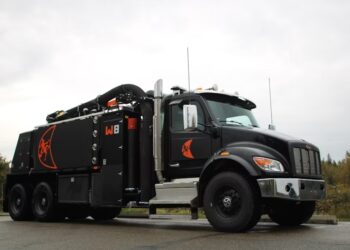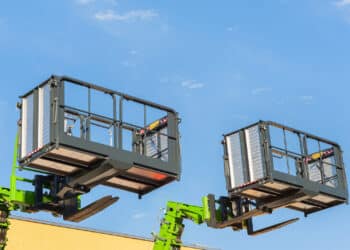The heavy-equipment industry is poised for increased investment in 2025 amid reduced borrowing costs and new-equipment incentives, but whether new federal policies accelerate or stymie growth remains to be seen.
Equipment and software investment is projected to grow at an annualized rate of 4.7% in 2025 after rising 7.8% and 6.6% in the fourth and third quarter, respectively, according to the Equipment Leasing and Finance Foundation’s (ELFF) industry snapshot report, released Jan. 7.
A final tally is expected to show new business volume in equipment finance at $120.7 billion for 2024, up 3.7% year over year. Equipment finance growth should continue in 2025 as reduced interest rates and capital costs bolster demand, Mark French, president of Atlanta-based Crest Capital, told Equipment Finance News.
“Our focus is on vertical markets that finance hard collateral, and from what we’re hearing, leaders across these industries are genuinely upbeat as they anticipate lower borrowing costs and policies encouraging reshoring,” he said. “We’re not expecting radical shifts, but there’s palpable enthusiasm as capital costs ease and equipment demand strengthens.”
New equipment loans with 0% APR are also supporting heavy-equipment sales, a trend that’s expected to continue, Kris Realander, sales manager at Morrisville, N.C.-based Triangle Equipment Group, told EFN.

Ramifications of policy changes
The U.S. economy is projected to grow at an annualized rate of 2.7% in 2025 after a 1.8% quarter-over-quarter bump in Q4, driven by a strong labor market, rising household wealth and “remarkably resilient consumer spending,” according to the ELFF report.
Possible tax breaks under President-elect Donald Trump could benefit equipment finance firms, with provisions like full-bonus depreciation and lower corporate tax rates possibly boosting investment, the report states. However, economists warn that Trump’s tax and spending policies may add $8 trillion to the federal debt over the next decade.
Moreover, Trump’s opposition to renewable energy and climate-focused objectives in favor of domestic oil drilling raises both optimism and concern in the heavy-equipment industry. While increased oil drilling may drive up equipment demand, financial incentives for zero- and low-emission vehicles may be eliminated under his watch, posing challenges to businesses that have been relying on such grants, according to the report.
Scaling back environmental, social and governance rules could create legal hurdles for lenders that finance equipment internationally, since they will have to navigate different regulations, Sara Costanzo, partner at Cleveland-based creditor rights law firm Weltman, Weinberg and Reis, told EFN.
“Environmental concerns are definitely switched by partisan interests,” she said. “However, in other countries, it’s still extremely important, and it’s tracked and monitored and measured. So, it depends on whether your lending institution is lending just in the United States or across borders as to their compliance and concern in those areas.”
The third annual Equipment Finance Connect at the JW Marriott Nashville in Nashville, Tenn., on May 14-15, 2025, is the only event that brings together equipment dealers and lenders to share insights, attend discussions on crucial industry topics and network with peers. Learn more about the event and register here.









